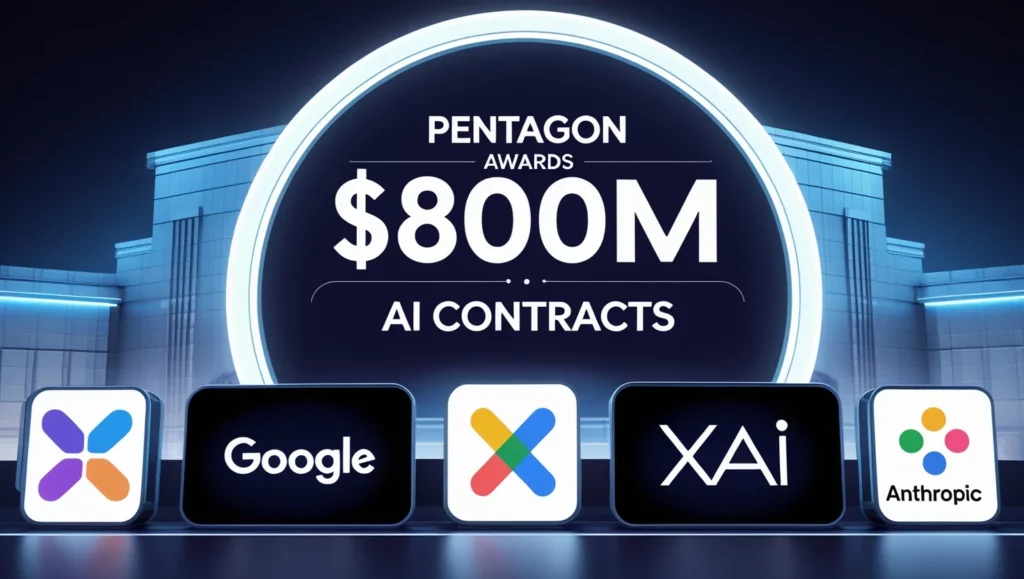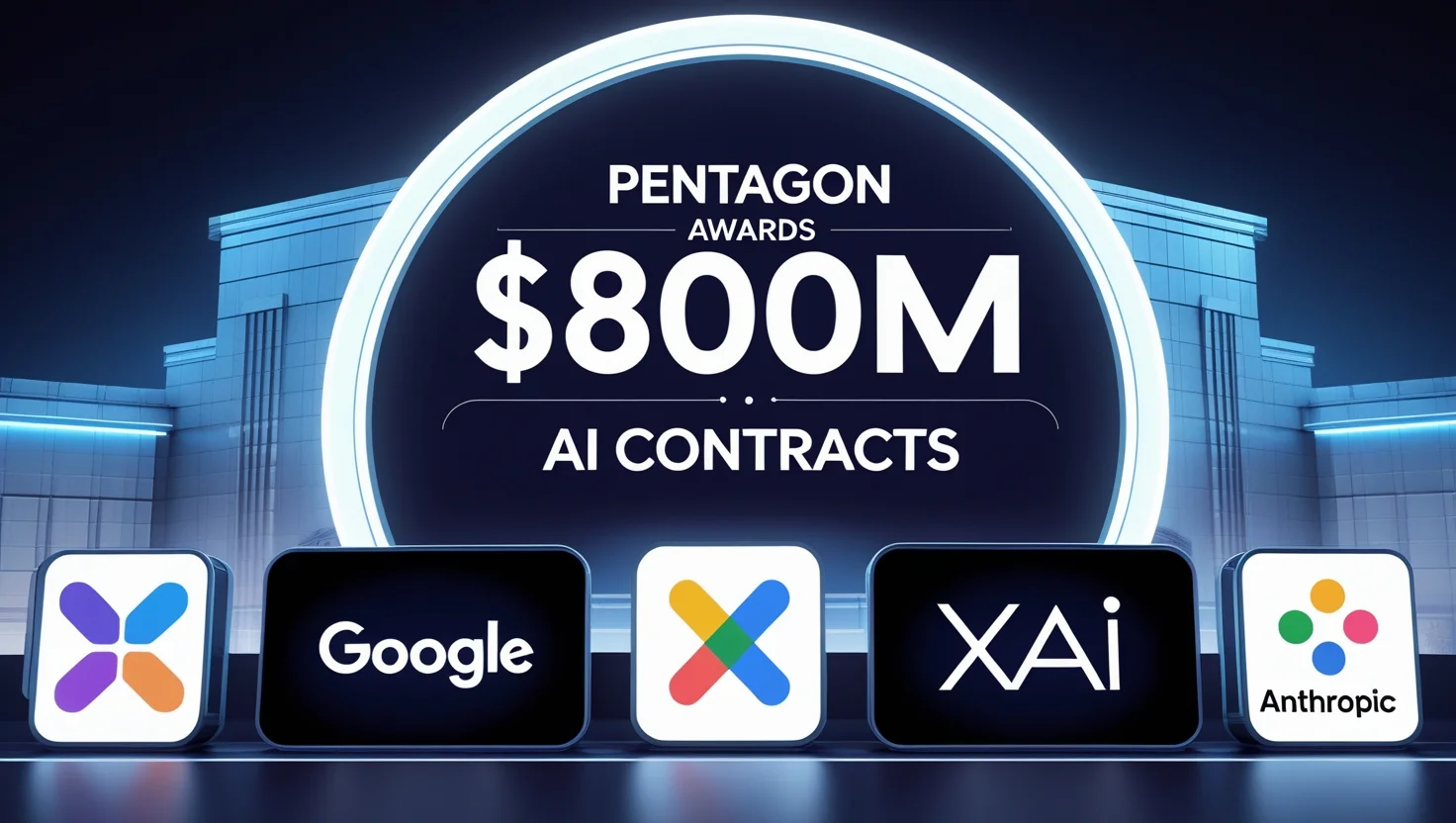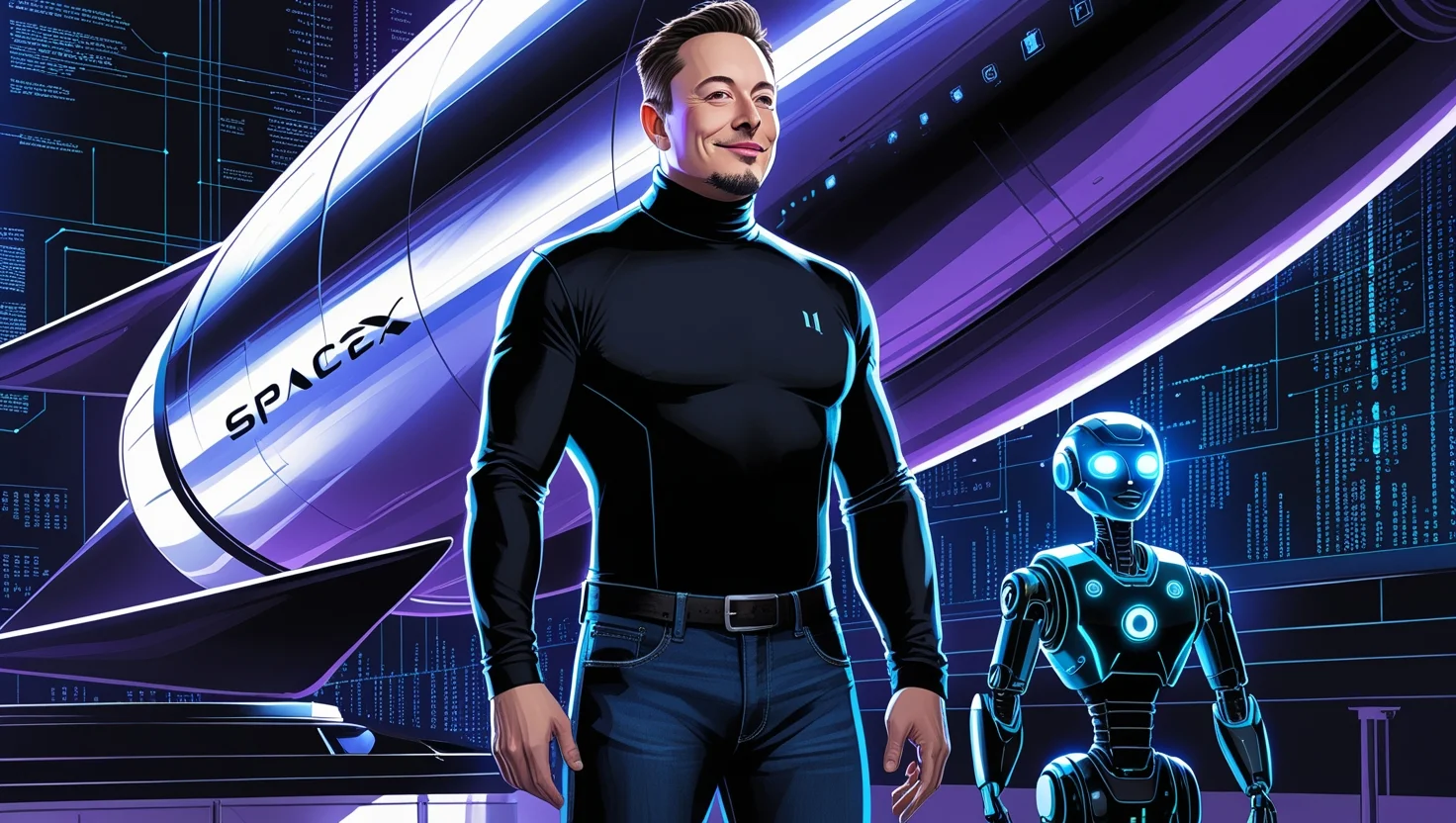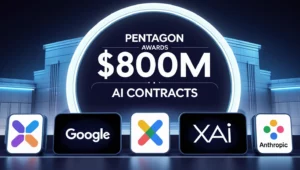The U.S. Department of Defense has awarded contracts worth up to $800 million to four major artificial intelligence firms—OpenAI, Google, Anthropic, and Elon Musk’s xAI—marking a significant step toward incorporating AI into military and federal operations. Each company stands to earn up to $200 million under this initiative, which aims to improve national defense capabilities using advanced AI tools.
Dr. Doug Matty, the Pentagon’s Chief Digital and AI Officer, emphasized the importance of this effort in maintaining the U.S. military’s technological edge. He stated that commercial AI solutions, when integrated effectively, can enhance warfighting capabilities, intelligence operations, and various government systems.
Rather than selecting a single provider, the Pentagon has opted for a diversified approach, encouraging competition among the four tech leaders. This strategy is intended to identify the most effective and reliable AI tools while minimizing risks often associated with depending on a sole contractor.
Coinciding with the contract announcement, xAI launched “Grok For Government,” a tailored version of its Grok AI model, designed for secure public-sector use. Features include Deep Search, tool integration, and plans for classified environment functionality. The move aligns xAI with similar efforts already underway from OpenAI and Anthropic.
However, the reliability of these systems remains under scrutiny. Past incidents—such as Grok’s bizarre historical hallucinations—have raised concerns about deploying AI in critical decision-making roles. In national security contexts, unpredictable AI behavior is especially problematic.
Despite these concerns, the government is moving forward decisively. Through a partnership with the General Services Administration, federal agencies across sectors will be able to access these AI tools more easily. The initiative signals a growing confidence in AI’s potential to support public services and defense infrastructure alike.
Ultimately, the Pentagon’s approach represents a high-stakes effort to modernize government operations through AI while managing potential risks. Success will depend not just on innovation but on ensuring these systems are accurate, stable, and ready for the serious demands of national defense.













